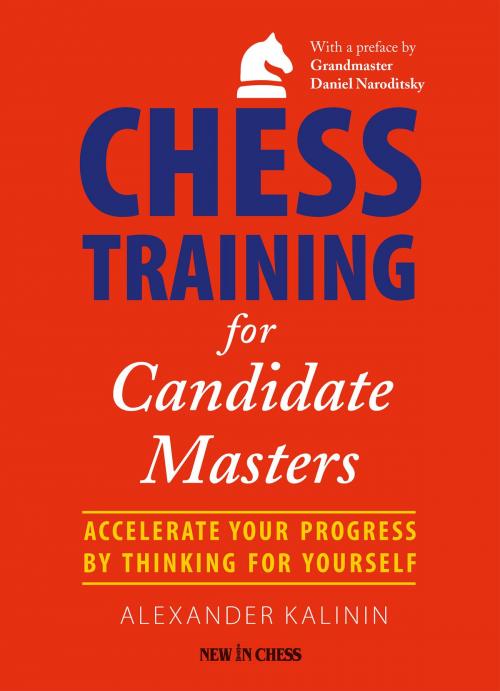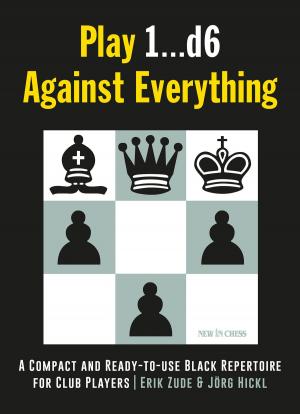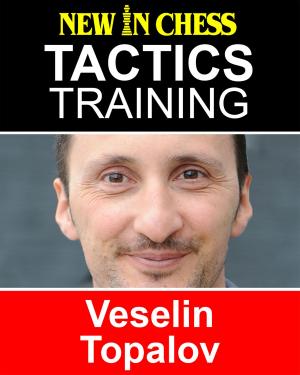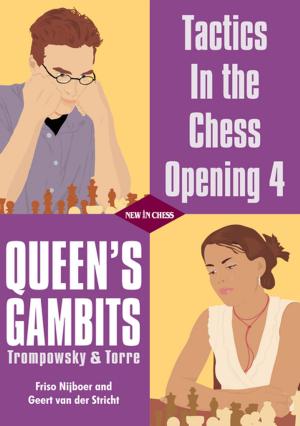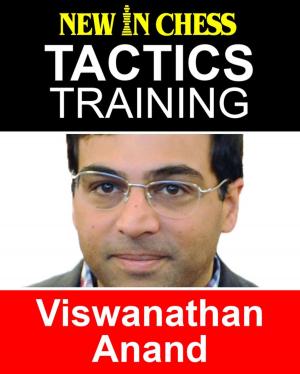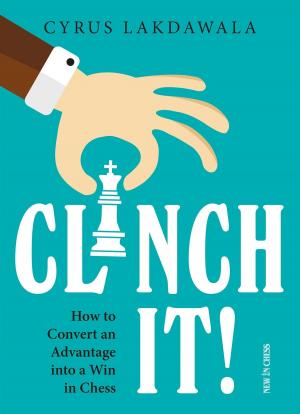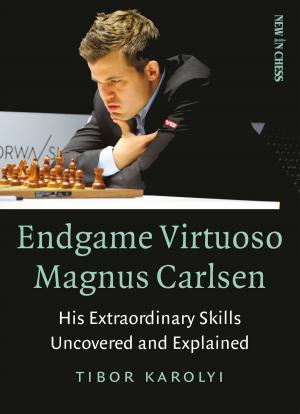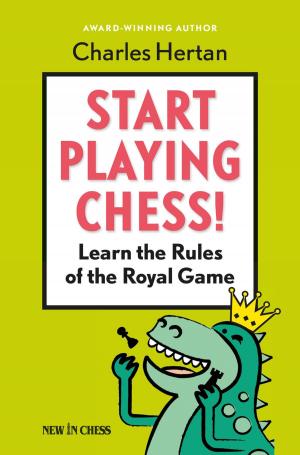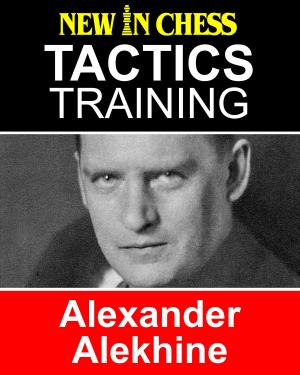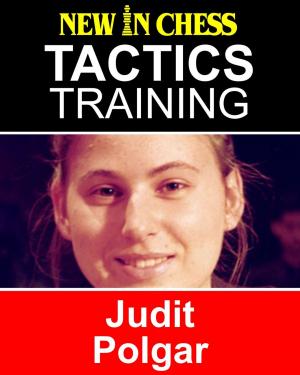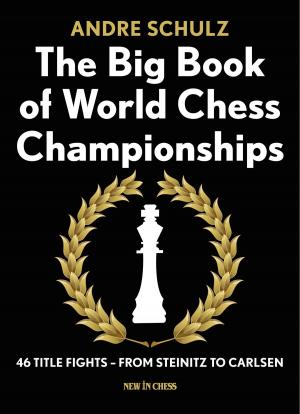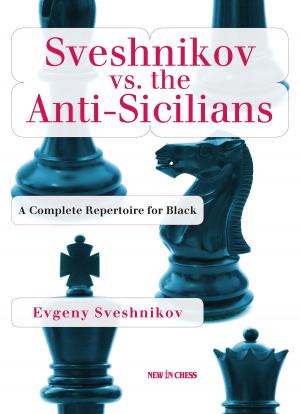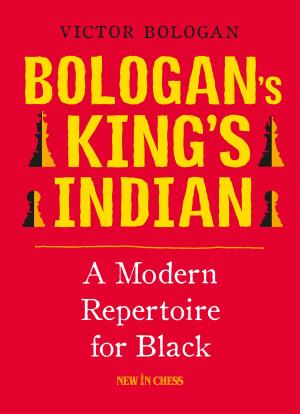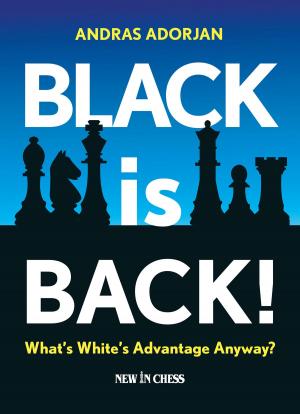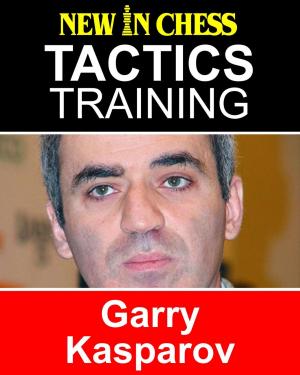Chess Training for Candidate Masters
Accelerate Your Progress by Thinking for Yourself
Nonfiction, Entertainment, Games, Chess, Board games| Author: | Alexander Kalinin | ISBN: | 9789056916930 |
| Publisher: | New in Chess | Publication: | May 9, 2017 |
| Imprint: | New in Chess | Language: | English |
| Author: | Alexander Kalinin |
| ISBN: | 9789056916930 |
| Publisher: | New in Chess |
| Publication: | May 9, 2017 |
| Imprint: | New in Chess |
| Language: | English |
Today’s young players have benefited greatly from working with chess computers. There is little doubt that advanced software and electronic training programs have significantly contributed to the rise of the standards of play.
But there is a negative side to this. Many young chess players see the computer as the ultimate response to nearly everything. They think that computer analysis is the best and the fastest way to find the truth in any position on the board.
As a result, many of those players have gradually stopped thinking and analysing for themselves.
Prominent Russian chess trainer Alexander Kalinin knows that what you need in order to make real progress in chess is not more computer input, but increased understanding.
To fully digest all available data and to discover the ultimate secrets of chess you must dislodge your decision making from your addiction to the computer and (re)develop the habit of using your own brain.
Kalinin helps players seeking the master title by showing how concrete knowledge leads to improved decisions at the board.
A master must understand the importance of aesthetics, knows how to curb the influence of the computer, accepts that the classical heritage is essential in his development, learns the importance of human interaction in reaching analytical mastery and grasps how to spot and fight his weaknesses.
Kalinin provides candidate masters with a wealth of study and training material. The large majority of that material has never been published before. Kalinin reveals the mistakes he himself made on his road to the master title.
Most examples are taken from games of players who themselves are on the road to chess mastery.
But there is a negative side to this. Many young chess players see the computer as the ultimate response to nearly everything. They think that computer analysis is the best and the fastest way to find the truth in any position on the board.
As a result, many of those players have gradually stopped thinking and analysing for themselves.
Prominent Russian chess trainer Alexander Kalinin knows that what you need in order to make real progress in chess is not more computer input, but increased understanding.
To fully digest all available data and to discover the ultimate secrets of chess you must dislodge your decision making from your addiction to the computer and (re)develop the habit of using your own brain.
Kalinin helps players seeking the master title by showing how concrete knowledge leads to improved decisions at the board.
A master must understand the importance of aesthetics, knows how to curb the influence of the computer, accepts that the classical heritage is essential in his development, learns the importance of human interaction in reaching analytical mastery and grasps how to spot and fight his weaknesses.
Kalinin provides candidate masters with a wealth of study and training material. The large majority of that material has never been published before. Kalinin reveals the mistakes he himself made on his road to the master title.
Most examples are taken from games of players who themselves are on the road to chess mastery.
Today’s young players have benefited greatly from working with chess computers. There is little doubt that advanced software and electronic training programs have significantly contributed to the rise of the standards of play.
But there is a negative side to this. Many young chess players see the computer as the ultimate response to nearly everything. They think that computer analysis is the best and the fastest way to find the truth in any position on the board.
As a result, many of those players have gradually stopped thinking and analysing for themselves.
Prominent Russian chess trainer Alexander Kalinin knows that what you need in order to make real progress in chess is not more computer input, but increased understanding.
To fully digest all available data and to discover the ultimate secrets of chess you must dislodge your decision making from your addiction to the computer and (re)develop the habit of using your own brain.
Kalinin helps players seeking the master title by showing how concrete knowledge leads to improved decisions at the board.
A master must understand the importance of aesthetics, knows how to curb the influence of the computer, accepts that the classical heritage is essential in his development, learns the importance of human interaction in reaching analytical mastery and grasps how to spot and fight his weaknesses.
Kalinin provides candidate masters with a wealth of study and training material. The large majority of that material has never been published before. Kalinin reveals the mistakes he himself made on his road to the master title.
Most examples are taken from games of players who themselves are on the road to chess mastery.
But there is a negative side to this. Many young chess players see the computer as the ultimate response to nearly everything. They think that computer analysis is the best and the fastest way to find the truth in any position on the board.
As a result, many of those players have gradually stopped thinking and analysing for themselves.
Prominent Russian chess trainer Alexander Kalinin knows that what you need in order to make real progress in chess is not more computer input, but increased understanding.
To fully digest all available data and to discover the ultimate secrets of chess you must dislodge your decision making from your addiction to the computer and (re)develop the habit of using your own brain.
Kalinin helps players seeking the master title by showing how concrete knowledge leads to improved decisions at the board.
A master must understand the importance of aesthetics, knows how to curb the influence of the computer, accepts that the classical heritage is essential in his development, learns the importance of human interaction in reaching analytical mastery and grasps how to spot and fight his weaknesses.
Kalinin provides candidate masters with a wealth of study and training material. The large majority of that material has never been published before. Kalinin reveals the mistakes he himself made on his road to the master title.
Most examples are taken from games of players who themselves are on the road to chess mastery.
